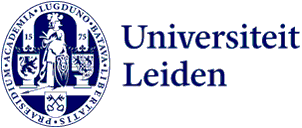
Populistist parties use parliamentary instruments differently
Populist parties in national parliaments have a different style of working from their colleagues in other parties. They often vote against Cabinet proposals, but do not ask more questions about Cabinet activities. This is the finding of Leiden research in different European countries.
Researchers Simon Otjes and Tom Louwerse studied parliamentary data from ten EU countries, ranging from the Netherlands to Romania. In their research they looked at how opposition parties make use of their voting rights, and how many written Cabinet questions they pose. The research shows that populist parties - or, to put it more precisely, anti-elitist parties - work differently from their colleagues.
'We wanted to know whether our findings also apply in other European countries.'
What prompted you to conduct this research?
Otjes: ‘We did similar research on the situation in the Netherlands, which showed that opposition parties do things differently. Some parties are constructive in how they operate, trying to influence policies by submitting proposals or amendments themselves. Other parties try to exercise more control, closely monitoring Cabinet policies by posing a lot of Cabinet questions. And then you have parties that take a more passive approach to opposition. We wanted to know whether our findings also apply in other European countries.'
What did you find?
‘The European data is more limited and it's sometimes difficult to make a comparison, so we only looked at Cabinet questions and voting behaviour, and not at other instruments, like amendments. What we found was that anti-elitist parties such as the Party for Freedom and the Socialist Party more often vote against Cabinet policies. They also ask more verbal and written questions, but that effect is cancelled out if you correct for the ideological distance from the current Cabinet. It's logical, of course, that a right-wing opposition party will ask more questions of a left-wing party, so you have to correct for that.'
Text continues below the block.
How to recognise a populist party
Scientists regard populism as an ideology that centres on four key claims:
- The will of 'the people' has to be the basis for government intervention.
- People are virtuous and homogeneous.
- The current elite are corrupt and do their utmost to keep the people from having power.
- Populist politicians aim to give power back to the people.
Populism can occur on all sides of the political spectrum. On the right, you often hear that 'the hardworking man/woman' is being lied to by the 'left-wing elite', and on the left that the '99 per cent' are being suppressed deliberately by the '1 per cent' that have all the money and power.
What do we learn from these findings exactly?
‘They show that there is a difference - not only in the Netherlands - between the different methods applied by opposition parties. Many parties use what could be called a 'responsible' method: they try to influence policies by submitting proposals themselves or voting with the government on some issues. Anti-elitist opposition parties use a much more responsive policy: they use their voting rights mainly to react against what they believe to be bad Cabinet policies, acting as a kind of megaphone for their critical followers.’
'There used to be large people's parties that were able to combine both these functions. [...] Today, many parties fulfil only one of these roles.'
Is this clash of styles a problem?
‘Our research is a snapshot in time: we can see that at the moment these opposition styles are diverging, but we can't tell whether this split will get bigger. However, if you look at qualitative research by other researchers, it does look that way. There used to be big people's parties that were able to combine both functions. They represented a clear group of followers, but also took responsibility for making policies. Today, many parties fulfil only one of these two roles, and that can make it more difficult to govern a country together.'
Are there any aspects that you would like to research further?
First of all, it would be great if we had better data so we can make a more meaningful comparison: not only the summarised data on how often a party voted for or against the Cabinet, but also on what issues. Tom [Louwerse, Ed.] is now trying to identify this data so that we can compare European countries. In my own research I look at the opposition parties in the town councils. I'm interested in the methods used by local parties because they can range from extreme left to extreme right.'
Text: Merijn van Nuland
Image: Wouter Engler via Wikipedia
Read more: Tom Louwerse on the gap between citizen and expert
Even a fairly cursory look at a newspaper or television will give you the impression that the gap between citizens and experts has got bigger. But just how big is this gap? And can science play a role in closing it? Political scientist Tom Louwerse in discussion with former Rector Carel Stolker and Rozemarijn Lubbe (current affairs TV programme EenVandaag).
